My friend, Professor Sait Tuzel, is in one of Turkey’s chronically overcrowded prisons. He has been there since August 7th in the academic witchhunt that has led to imprisonment of thousands of journalists, judges and academics. Imagine how frightening it must be. He is not allowed reading materials, and only once a week is he allowed to see his wife, the mother of his two young children, seated behind a thick plexiglass barrier for 30 minutes.
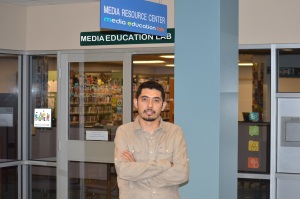 Guilty of Being a Media Literacy Education Leader. Sait’s research and teaching examines media literacy education as a dimension of language arts education. With his colleague Ebubekir Cakmak, he wrote, “Debates about the Future of Media Literacy in Turkey” which identifies some of the ongoing challenges to implementing media literacy in that country. (This article has been downloaded 130 times since publication in 2015.) Sait Tuzel is one of the leaders of media literacy education in Turkey, which includes scholars from both communication and education fields. In his work as a member of the Media Education Lab, we co-authored research that was recently published in the British Journal of Education Technology, entitled “Teacher Motivations for Digital and Media Literacy in Turkey. See his recent presentation on media literacy to Turkish educators.
Guilty of Being a Media Literacy Education Leader. Sait’s research and teaching examines media literacy education as a dimension of language arts education. With his colleague Ebubekir Cakmak, he wrote, “Debates about the Future of Media Literacy in Turkey” which identifies some of the ongoing challenges to implementing media literacy in that country. (This article has been downloaded 130 times since publication in 2015.) Sait Tuzel is one of the leaders of media literacy education in Turkey, which includes scholars from both communication and education fields. In his work as a member of the Media Education Lab, we co-authored research that was recently published in the British Journal of Education Technology, entitled “Teacher Motivations for Digital and Media Literacy in Turkey. See his recent presentation on media literacy to Turkish educators.
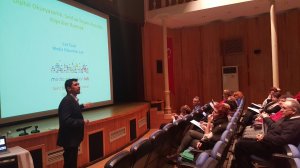 Sait has been an academic superstar whose work has outshone that of his academic colleagues at Canakkale Onsekiz Mart University, inspiring some academic jealousy that may have contributed to the false claims made about him.
Sait has been an academic superstar whose work has outshone that of his academic colleagues at Canakkale Onsekiz Mart University, inspiring some academic jealousy that may have contributed to the false claims made about him.
When he returned to Turkey in September 2016, Sait helped create and lead a teacher-training conference on media literacy education in Antalya for more than 150 teachers from all across Turkey. The conference was funded by RTUK, the Turkish government’s communications ministry.
- I wonder: Did Sait’s work as a Visiting Scholar at the University of Rhode Island’s Media Education Lab contribute to his being accused of criminal action? What has he been accused of? With the numerous sensational anti-American conspiracy theories being promulgated by Turkey’s government-controlled press, his visit to the U.S. may have inspired resentment, jealousy or anger among some academic colleagues.
Fear Rules. Everyone I know in Turkey is terrified as a culture of fear has taken hold, nurtured by Erdogan-inspired polarization. But the fear is not limited to Turkey. The United States government is also apparently afraid to criticize Erdogan as well, given his role in dealing with the Syrian refugees. In fact, President Obama has said nothing about the situation of the academic purge when he met with Erdogan last week.
- I wonder: Is Erdogan trying to erase the legacy of Presidnt Ataturk? Is he trying to bully the United States? The Turkey government would love for the U.S. to abandon its support for the Kurdish people in Syria and Turkey.
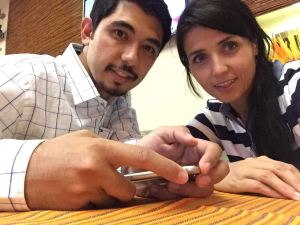 Sait Tuzel is an amazing, dedicated and talented young scholar and teacher and he is a devoted husband and father. It’s an awful helpless feeling to have people you care about who are facing a horrible crisis that you can’t actually help. My friend Sait is one of many academics in Turkey who is struggling with the awful political reality in that country.
Sait Tuzel is an amazing, dedicated and talented young scholar and teacher and he is a devoted husband and father. It’s an awful helpless feeling to have people you care about who are facing a horrible crisis that you can’t actually help. My friend Sait is one of many academics in Turkey who is struggling with the awful political reality in that country.
Power Play. It seems obvious now that Turkish president Recep Tayyim Erdogan has made a blatant effort to further his power, using the attempted July 15 coup to overhaul any semblance of democracy founded by the historic legacy of Mustapha Kemal Ataturk, the first President of Turkey. Conservative Muslim traditionalists are now empowered by President Erdogan. In a country polarized between the people of the mostly secular West (called the secularists) and those from the East who are mostly traditional Muslim and conservative, he has gone after the secularists. He has fired 70,000 government employees (including my friend Asli Aydemir Telli, a professor of communication fired from Istanbul Sehir University for signing the “Academics for Peace” petition). The Turkish government even released 38,000 real criminals from prison to free up space for them. Academic freedom has been erased from the country by these actions.
- I wonder: By firing academics, imprisoning journalists, firing independent judges and attempting to change the Turkish Constitution, is President Erdogan reshaping the country’s political system in ways that enable him to rule the country with no challenge to his power?
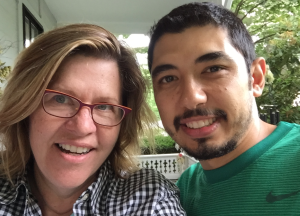 What can we do? Talk to others and inform them about this situation and urge your elected representatives to petition the Turkish government to end this madness. Professor Chad Kautzer of Lehigh University has urged academics to investigate whether our own colleges and universities can temporarily host or hire an academic currently at risk in Turkey. We can also urge our institutions to join the Scholars at Risk network. We can participate in political actions like this campaign to send letters to university rectors in Turkey. We can urge reporters to put a human face on the situation by telling the stories of people like Sait, whose lives and careers are being destroyed by the witch hunt.
What can we do? Talk to others and inform them about this situation and urge your elected representatives to petition the Turkish government to end this madness. Professor Chad Kautzer of Lehigh University has urged academics to investigate whether our own colleges and universities can temporarily host or hire an academic currently at risk in Turkey. We can also urge our institutions to join the Scholars at Risk network. We can participate in political actions like this campaign to send letters to university rectors in Turkey. We can urge reporters to put a human face on the situation by telling the stories of people like Sait, whose lives and careers are being destroyed by the witch hunt.

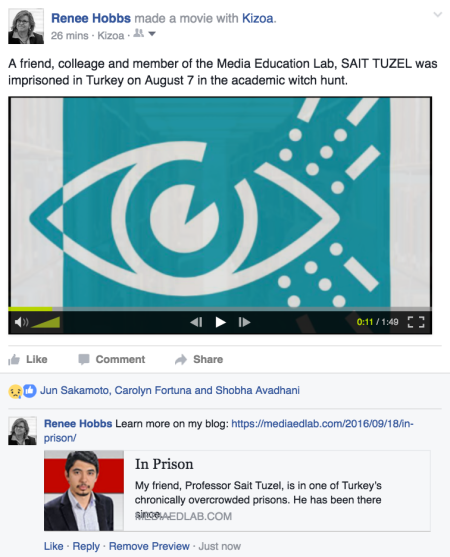
Pingback: Urban Spaces, Global Ideas, and the Silencing of Sait Tuzel - EcoLocalizer
This is a great bllog